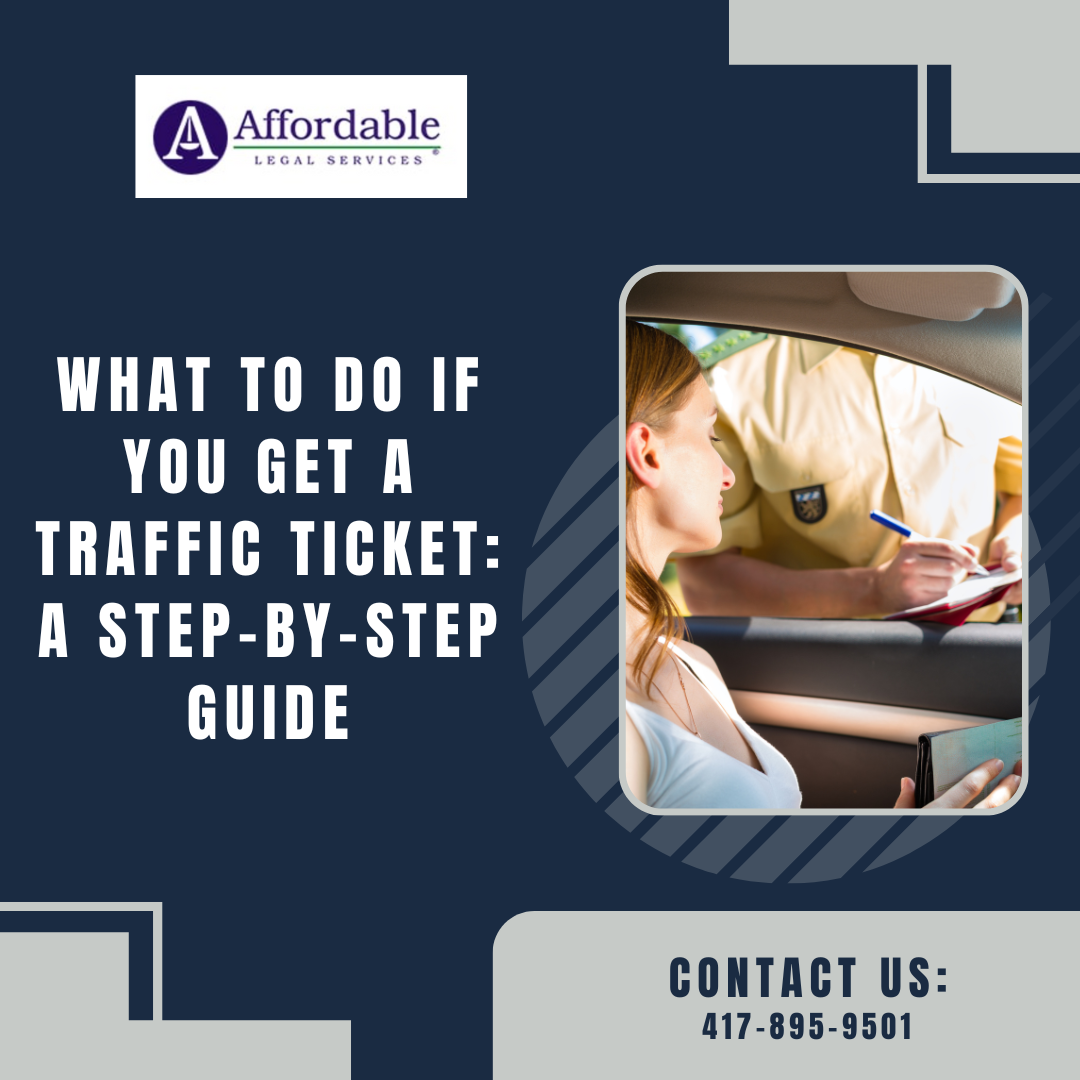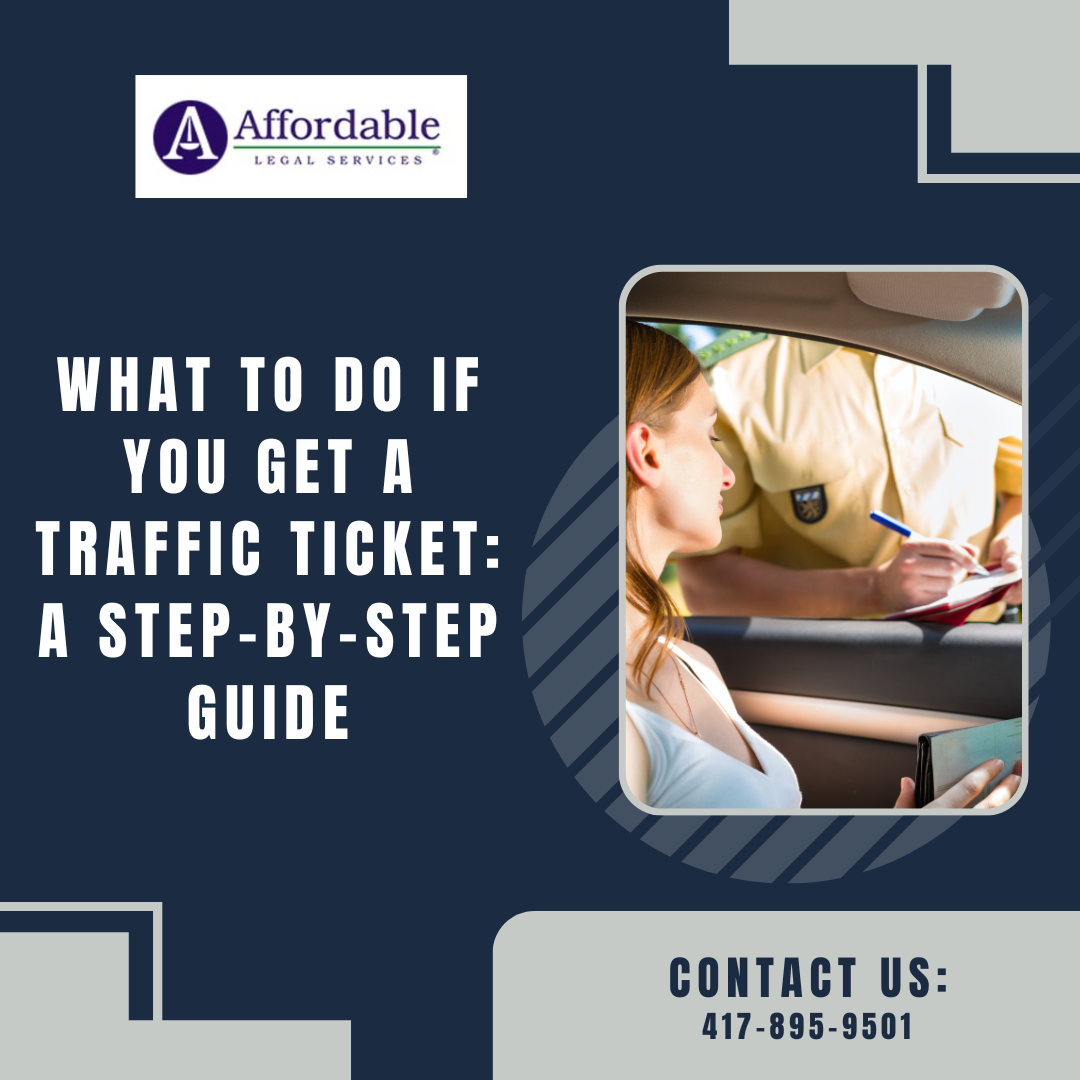Traffic tickets are issued to drivers who violate traffic laws, whether it’s something minor like speeding or more serious offenses such as reckless driving. Receiving a ticket might seem like a small inconvenience, but it can have lasting effects. Traffic violations can impact your driving record, lead to higher insurance premiums, and put a dent in your finances. Understanding your options—whether to pay or contest the ticket—is important. In certain situations, consulting a traffic ticket attorney or traffic defense attorney can make all the difference in protecting your rights and minimizing consequences.

Step 1: Stay Calm and Collect the Ticket
Getting pulled over is stressful, but staying calm and cooperative is important. When stopped by law enforcement, avoid arguing or making sudden movements that might worsen the situation. Politely accept the ticket and keep track of any details about the interaction, such as the officer’s name and badge number.
A traffic ticket typically includes key details about the violation, such as the date, time, location, and nature of the offense, along with the fine amount and court date (if applicable). Carefully review this information to ensure its accuracy. Incorrect details on the ticket could provide grounds for dispute later.
Step 2: Understand the Violation
Not all traffic violations are the same, and understanding the specific offense is essential. Minor violations like speeding or running a stop sign usually result in fines and points on your license. On the other hand, serious offenses like reckless driving or driving under the influence (DUI) come with harsher penalties, including license suspension, larger fines, or even jail time.
Take the time to research the local traffic laws that apply to your ticket. Missouri, for instance, has a point system that can lead to license suspension if too many points accumulate. Knowing the potential penalties can help you decide your next steps.
Step 3: Decide Whether to Pay or Contest the Ticket
Paying the Ticket
Paying a traffic ticket is the simplest option, but it has consequences. By paying, you are admitting guilt, which can add points to your license and potentially increase your insurance rates. The process of paying is straightforward and can be done online, by mail, or by visiting the appropriate office in person. Before paying, make sure you’re comfortable with the long-term impact this decision might have.
Contesting the Ticket
If you believe the ticket was issued unfairly or want to avoid penalties, you can contest it. Some people assume contesting a ticket requires significant time or effort, but the benefits can outweigh the drawbacks. Challenging the ticket lets you explain your side and possibly reduce or eliminate penalties. Understanding your rights and the benefits of contesting your ticket is important in deciding how to proceed.
Step 4: Seek Legal Advice from a Traffic Defense Attorney
Consulting a traffic defense attorney can provide clarity and guidance for those unsure of how to handle a traffic ticket. These attorneys specialize in traffic law and can evaluate your case to determine the best action.
There are certain situations where hiring an attorney is especially important—such as when facing severe penalties, like license suspension, or when the violation might impact your employment (e.g., commercial drivers). A traffic ticket attorney can help you understand your options, prepare a strong defense, and, in many cases, achieve a more favorable outcome. Their knowledge of local laws and court procedures can significantly strengthen your case.
Step 5: Prepare for Court (If Contesting the Ticket)
If you choose to contest the ticket, proper preparation is key. Start by gathering evidence to support your case. This could include photos of the traffic scene, dashcam footage, or witness statements that validate your account of the incident.
It is important to study local traffic laws related to your violation and understand what the prosecution must prove to uphold the ticket. Also, familiarize yourself with courtroom procedures and what to expect during the hearing.
A traffic ticket attorney can be a valuable ally during this process. They can gather evidence on your behalf, present a compelling defense, and advocate for you in court. Their expertise in handling traffic cases can improve your chances of achieving a favorable outcome.
Step 6: Consider Long-Term Consequences and Prevent Future Tickets
Traffic tickets don’t just represent a one-time inconvenience—they can have long-term effects on your driving record and insurance rates. Points from traffic violations can add up over time, leading to higher premiums, license suspension, or even revocation. Taking proactive steps to prevent future tickets is key to maintaining a clean driving record.
To avoid future violations:
Stay updated on traffic laws in your area.
Practice defensive driving techniques to stay safe on the road.
Be mindful of common traffic mistakes, such as failing to stop at red lights or exceeding speed limits.
These habits help you avoid tickets and keep you and others safe on the road.
Take Control of Your Traffic Ticket and Protect Your Driving Record
Getting a traffic ticket can be frustrating, but it doesn’t have to lead to long-term problems if handled properly. Staying calm, understanding the violation, and exploring your options are critical first steps. Whether you choose to pay the ticket or contest it, being informed and prepared makes all the difference. In more complex cases, consulting a traffic ticket attorney or traffic defense attorney ensures you have the support needed to protect your driving record and rights. By taking thoughtful action and learning from the experience, you can minimize the impact of a traffic ticket and avoid similar situations in the future.











